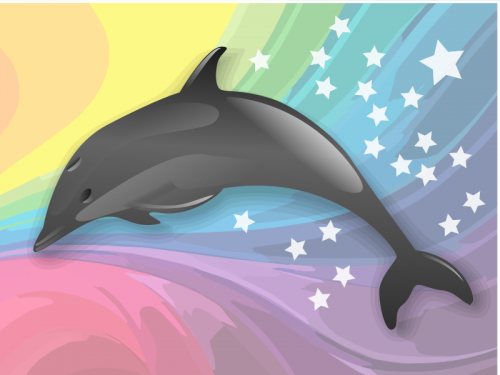New-Age vs. Non-New Agey.
Both, readers and writers alike, often inquire as to why elephant journal labels its spirituality section “non-new agey spirituality.” Well, obviously the answer is that we try not to endorse new-age spirituality, which begs the question, “What is the difference between new-age spirituality and non-new agey spirituality? Here is my answer:
Simply put, spirituality is not about changing yourself or creating a newer-better you. It is not a rejection of yourself, but a getting to know yourself in the most intimate way possible. Authentic spirituality is about mindful participation in your own life. While, new-age spirituality is concerned with carving out a new, more exotic role for the ego to play.
The tendency to “change ourselves” manifest in varying degrees, from the subtle to the extreme, but regardless of the severity this business of changing ourselves is always violent. In order to change ourselves, we must divide ourselves and reject the less desirable half. Then, we must force the “bad half” to conform to the dictates of the “good half.” This process of “divide, reject, and change” transforms life into a struggle and carries on indefinitely, leaving in its wake a reservoir of pain, fear, and aggression.
True spirituality is the subtlest expression of non-violence. It is learning to Love, which is difficult. We must be willing to move into the darkest areas of our life and Love ourselves out of the darkness through mindfulness and patience. We have to see our naked body, with all of its perfections and imperfections, and patiently resist the violent urge to reject it. This takes an immense amount of courage. We are terrified of seeing ourselves without any clothes on. We insist upon avoiding ourselves by thinking about ourselves; rather than being our Self. True spirituality is about rediscovering the indestructible dignity of being through the practice of Love.
True spirituality is not limited to religious traditions, and fake spirituality can emerge under a religious guise… Here are a couple of bonuses from a couple of pretty well-known guys that convey the same message:
“The acceptance of oneself is the essence of the whole moral problem and the epitome of a whole outlook on life.
That I feed the hungry, that I forgive an insult, that I love my enemy in the name of Christ—all these are undoubtedly great virtues. What I do unto the least of my brethren, that I do unto Christ.
But what if I should discover that the least among them all, the poorest of all the beggars, the most impudent of all the offenders, the very enemy himself—that these are within me, and that I myself stand in need of the alms of my own kindness—that I myself am the enemy who must be loved—what then? As a rule, the Christian’s attitude is then reversed; there is no longer any question of love or long-suffering; we say to the brother within us “Raca,” and condemn and rage against ourselves. We hide it from the world; we refuse to admit ever having met this least among the lowly in ourselves.” ~Carl Jung
“But who prays for Satan? Who in eighteen centuries, has had the common humanity to pray for the one sinner that needed it most, our one fellow and brother who most needed a friend yet had not a single one, the one sinner among us all who had the highest and clearest right to every Christian’s daily and nightly prayers, for the plain and unassailable reason that his was the first and greatest need, he being among sinners the supremest?” ~ Mark Twain’s Autobiography, via Waylon Lewis
~
Elephant Spirituality is an example of Elephant Journal’s commitment to the Mindful Life. We look to provide a fresh and practical perspective on traditional spirituality. If you would like to follow Elephant Spirituality on FaceBook click here and become a fan of Elephant Spirituality by clicking the “Like” tab at the top of the page.
 Share on bsky
Share on bsky


Read 109 comments and reply